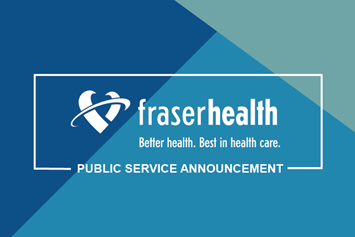
We’re making significant strides on our digital transformation journey. Learn how we’re using new technology to enhance patient and provider experiences and ensure we are prepared for the health care needs of the future.
The Fraser Health population is expected to grow by 32 per cent over the next 15 years, according to population estimates from BC Stats. To keep up with this growth, we’re focusing on digital transformation to provide high-quality, patient-centered care more efficiently.
WATCH the video below to learn about our digital health strategy and some of our latest innovations – including the Digital Front Door, Virtual Hospitalist line and the AI-powered colonoscopy tool.
The video touches on just a few of the great innovations happening at Fraser Health. Keep reading for more examples of how we’ve digitally transformed health care over the past 12 months.
Building a digital foundation with an electronic health record.
In September 2024, Royal Columbian Hospital became the fourth site to switch to a fully electronic health record. This move from paper charts to digital records helps doctors and nurses access patient information in real-time, reduces paperwork and makes it easier for different health care providers to work together. It also sets the stage for future digital tools.
The electronic health record is part of a larger program called Advance, which includes other projects like speech recognition, handheld devices for bedside care, barcode scanning for medication and better tools for pharmacy, lab and medical imaging services.
Using digital tools to improve access to health care.
We’re helping people navigate the health care system with tools like our Digital Front Door. This online tool lets people ask our digital health care navigator, Fraser, a few questions to quickly find the best care option.
In addition, our Fraser Health Virtual Care service, which now includes a virtual registered dietitian, allows people to talk to registered nurses and dietitians, and has recently been shown to reduce non-urgent visits to the emergency department.
Meanwhile, more care teams are using virtual care models, like the Virtual Hospitalists line at Eagle Ridge Hospital, which reduces the time needed to admit new patients by about two and a half hours. The virtual care model for speech language pathologist patients at Chilliwack General Hospital has also sped up patient access to see a practitioner and reduced the waitlist by 45 weeks.
Revolutionizing health care with artificial intelligence.
Artificial intelligence (AI) is transforming patient care, making things more efficient and giving better predictions. Here are some of the ways we’ve used artificial intelligence this past year:
- Colonoscopies – GI Genius assists doctors in detecting pre-cancerous polyps with greater accuracy during colonoscopies, providing real-time information that improves patient outcomes.
- Discharge planning – A new discharge tool uses real-time data to help care teams more accurately predict when patients will be ready to go home, ensuring smoother transitions from hospital to home.
- Wait times – Emergency department wait times have become more accurate with an AI algorithm, which helps patients make more informed decisions about their care options.
This has been an exciting and transformative year for Fraser Health. Looking ahead, we will keep building on our successes, driving more innovation and making sure we meet the changing needs of our patients, staff and medical staff.


